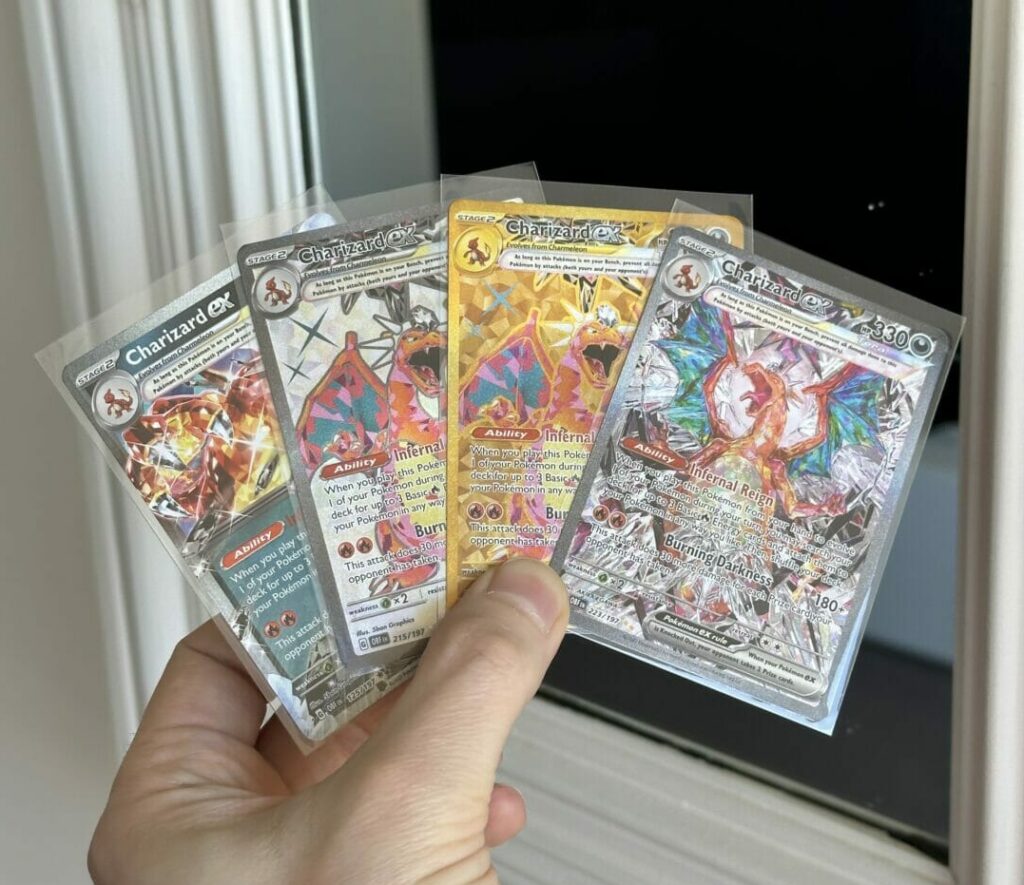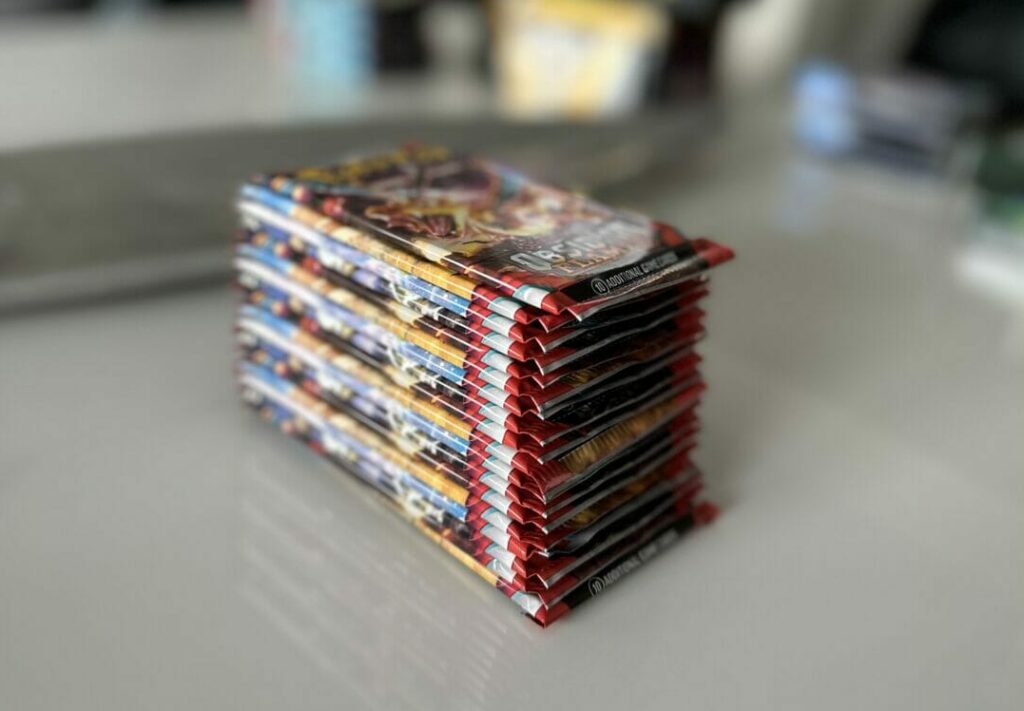Pokémon cards have been around since 1996 in Japan and 2000 everywhere else, and have become a global phenomenon with millions of fans and collectors. However, did you know you can also make money from Pokémon cards? ‘Pokevesting’ is the term used to describe the practice of investing in Pokémon cards, either by buying, selling, or trading them for profit. In this way, pokevesting can be a fun and rewarding hobby, but it also requires some knowledge and strategy to succeed. Here are some Pokevesting tips to help anyone get started.
1. Know your cards
The first and most basic of Pokevesting tips is to know your cards. There are many factors affecting the value and rarity of Pokemon cards, such as the set, edition, condition, grade, print run, and overall demand – the last of which is the most difficult to determine. You should familiarise yourself with these terms and learn how to identify and evaluate your cards. Some useful resources to learn more are as follows:
- PokeInvesting, a subreddit dedicated to Pokémon investing and finance, where you can find news, discussions, advice, and analysis from other Pokevestors.
- YouTube, a great resource to learn more about Pokevesting from experiences buyers, sellers, gamers and pack openers. Some of the most useful channels to better understand the investment side of things are Twice Baked Jake, Danny Phantump, and XDanireon; whereas PokeRev and UnlistedLeaf offer a great idea of what is popular whilst offering some great entertainment.
- TCGplayer, an online marketplace where Pokevestors can buy and sell Pokemon cards, as well as check the prices and trends of different cards and sets. Incredibly useful tool to determine the value of cards one may have in their collection, as well as to better understand market trends.
- PSA, the most trusted of professional grading services which authenticates and evaluates the condition of Pokemon cards, assigning them a numerical grade from 1 to 10. The higher the number, the more valuable the card. PSA-graded cards are vastly more valuable and desirable than ungraded ones because they have gone through the grading process. Although any card can be graded, doing so can be quite costly. As such, it is always a good idea to determine if grading will make a difference to a card’s value. Certain cards will increase in value tenfold when graded 8 or higher.

2. Have a budget and a goal
The second and arguably most influential of Pokevesting tips is to have a budget and a goal. Pokevesting can be an expensive hobby, especially if you want to buy rare and high-grade cards. As such, it is important to set a realistic budget and stick to it, avoiding impulse purchases and overspending. You should also have a very clear goal for your Pokevesting, whether it is to complete a collection, flip cards for quick profit, or hold cards for long-term appreciation (the latter of which is often the most successful, even if the least gratifying). Having a goal always helps to provide focus on your efforts and to make better informed decisions.
3. Do your research
The third tip for Pokevesting is to do your research. Pokevesting is not a get-rich-quick scheme, but rather a form of speculation involving risk and uncertainty. Interested parties should not blindly follow the hype or the herd mentality, but rather do their own research and analysis before buying or selling any card or choosing product to invest in. With this in mind, and where possible, the following factors should be considered:
- The historical performance and future potential of the card or set
- The supply and demand of the card or set in the market
- The popularity and relevance of the card or set in the Pokémon franchise
- The current events and trends possibly affecting the card or set
- The competition and alternatives that may affect the card or set
it is always a wise idea to compare different sources of information and opinions, such as blogs, podcasts, forums, social media, etc., and form your own judgment based on facts and logic.

4. Diversify your portfolio
The fourth of these Pokevesting tips is all about diversification of ones portfolio. Pokevesting is similar to stock investing in that you should not put all your eggs in one basket, but rather spread your risk across different cards and sets. Diversifying your portfolio will help you reduce your exposure to market fluctuations and increase your chances of finding profitable opportunities. In this sense, it is important to consider diversifying your portfolio by:
- Investing in different generations and regions of Pokémon cards
- Investing in different types and rarities of Pokémon cards
- Investing in different formats and mediums of Pokémon cards
- Investing in different grading services and standards of Pokémon cards
5. Enjoy the journey
As far as Pokevesting tips go, the fifth and final is the most important: have fun and enjoy journey. The Pokémon TCG and video games are all about fun, so Pokevesting should be too. it is not solely about making money, but also about having a great time and expressing your passion for Pokémon. Do not let Pokevesting cause stress or take over your life. Rather, take your time and enjoy the process of collecting, trading, and learning more about Pokémon cards. Doing so will also allow you to connect with other Pokevestors and share your experiences, insights, and tips with them. Joining a larger community and experiencing the fun enjoyment that comes from the Pokevesting hobby is far more rewarding of an endgame than simple cash money wads.
Owner, founder and editor-in-chief at Vamers, Hans has a vested interest in geek culture and the interactive entertainment industry. With a Masters degree in Communications and Ludology, he is well read and versed in matters relating to video games and communication media, among many other topics of interest.










